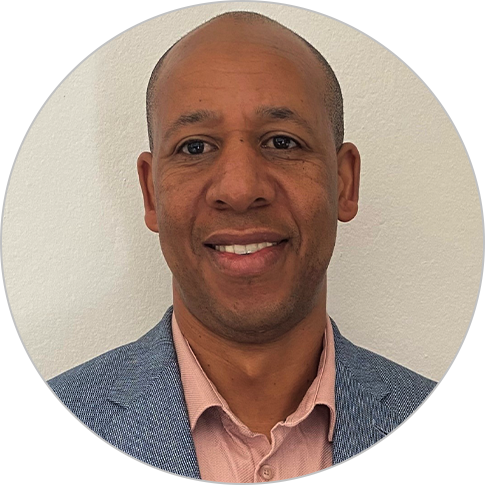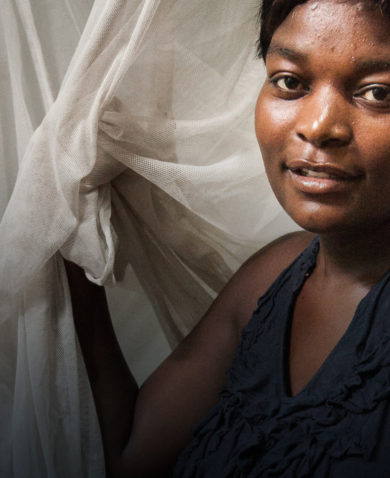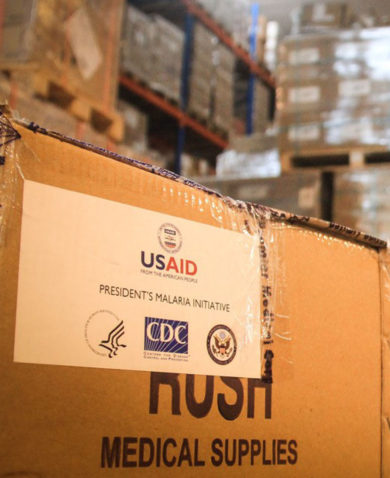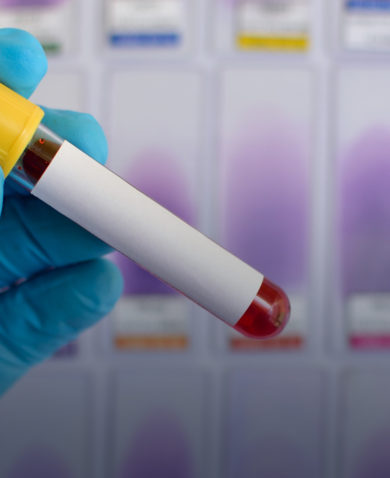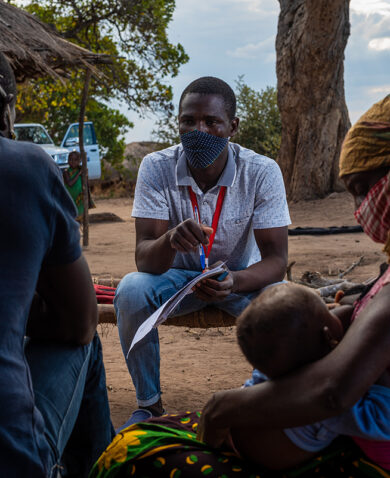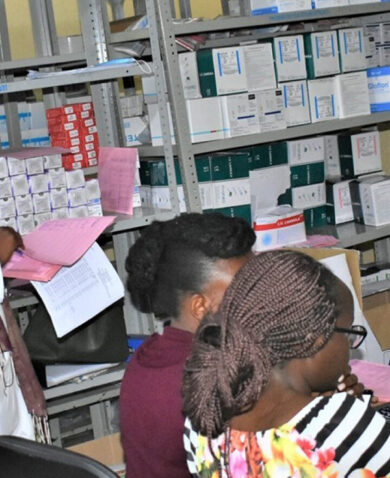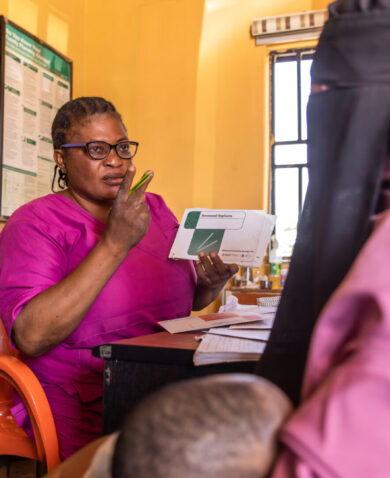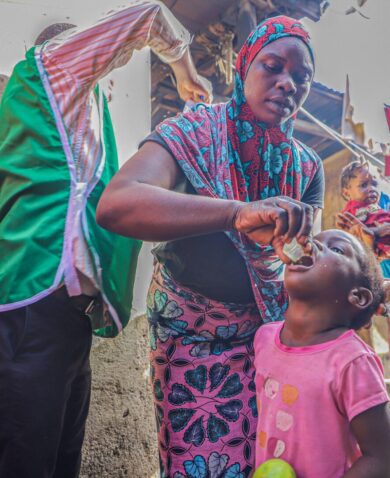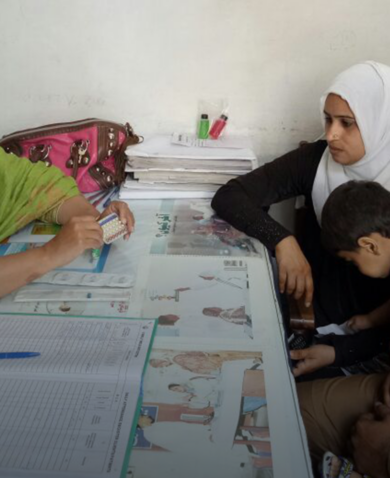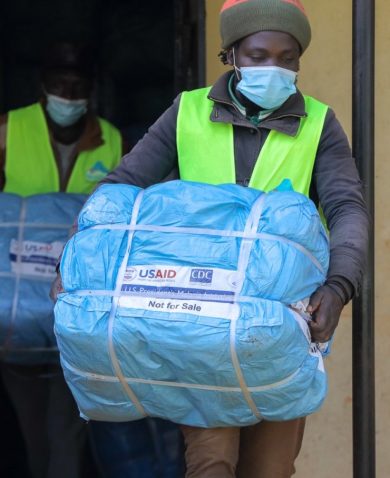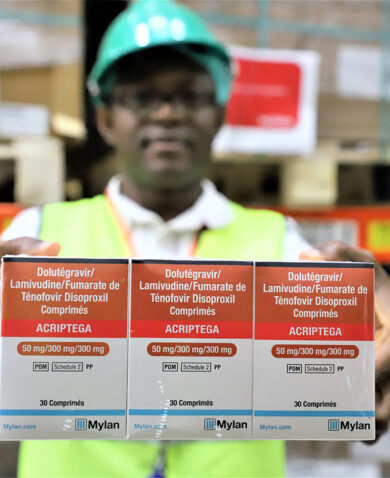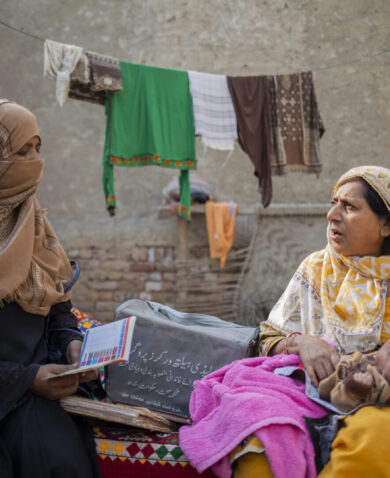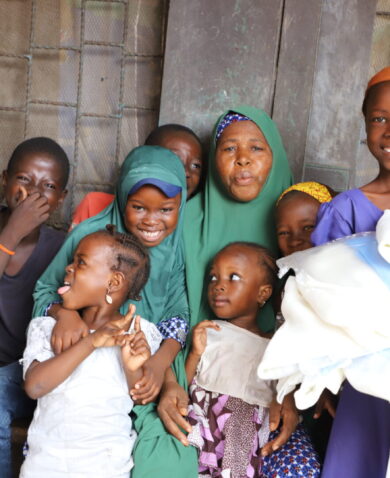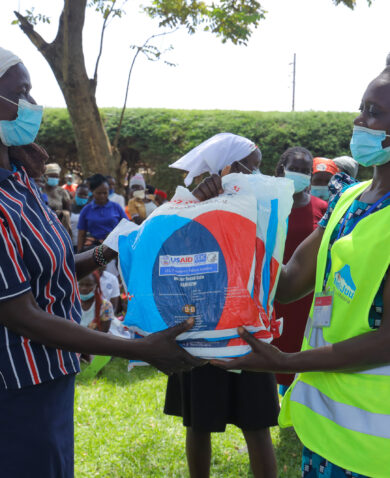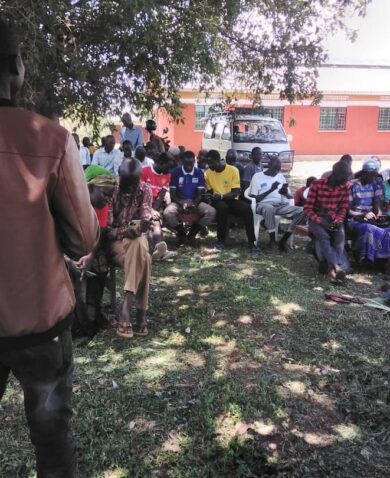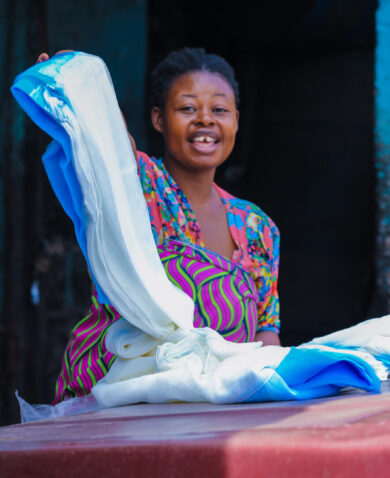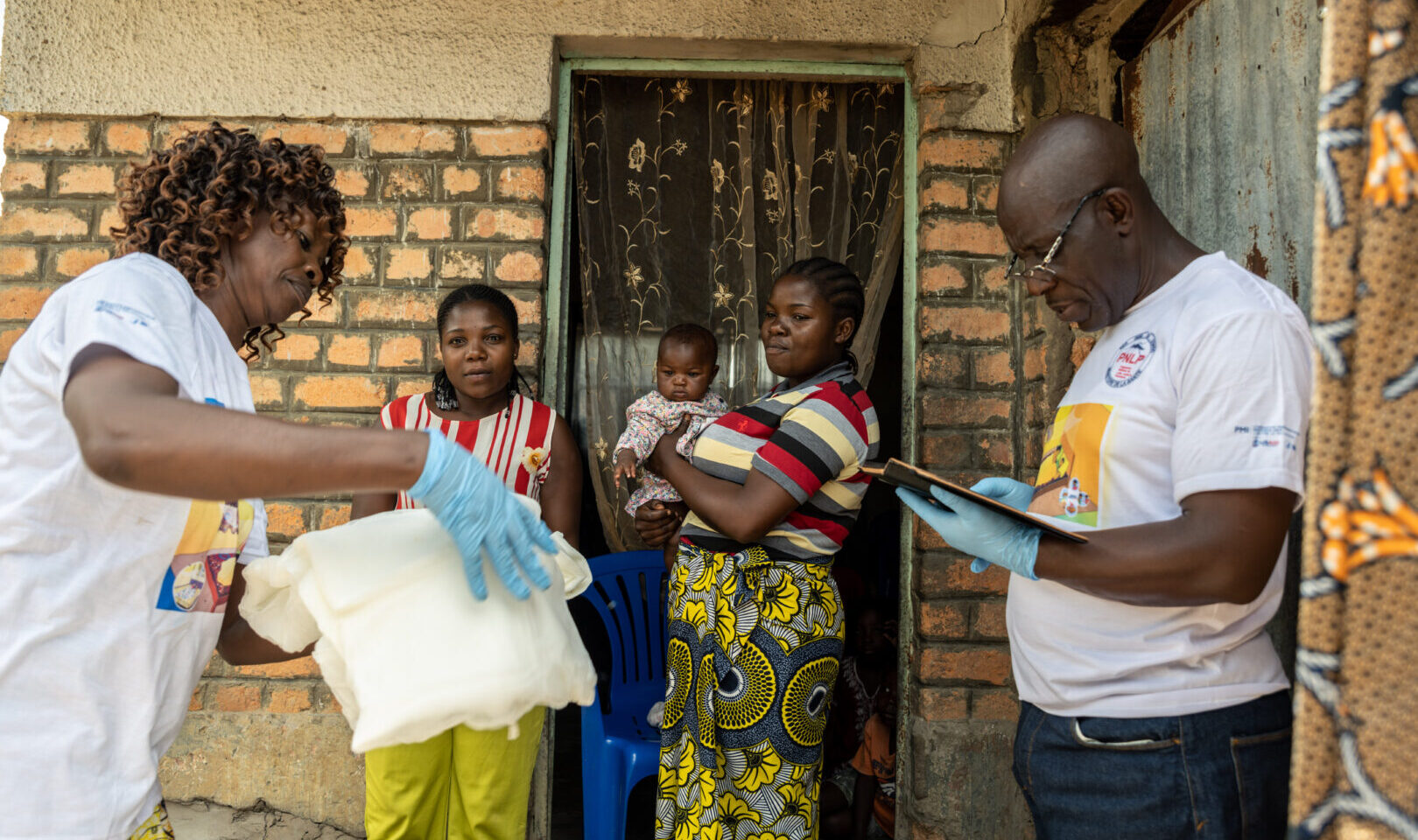
Trinômes to Binômes: Optimizing Community Health Resources to Achieve Universal ITN Coverage in the DRC
April 19, 2024 | < 1 Minute ReadThis post originally appeared in The Frontline Health Workers Coalition.
Despite having limited resources, the Democratic Republic of Congo (DRC) continues its fight against malaria through the widespread distribution of insecticide-treated bed nets (ITNs). However, finding efficiencies and reducing the cost of each campaign is paramount. Thanks to the collaborative efforts of the U.S. President’s Malaria Initiative (PMI), the Chemonics-led USAID End Malaria Project, and the DRC National Malaria Control Program (NMCP), a significant milestone has been reached: the transition from a team of three community health workers (CHWs), or a trinôme, to a team of two, a binôme, for mass ITN distribution campaigns. This strategic shift signals a groundbreaking achievement, yielding 30% cost savings on both human resources and training costs for each campaign. Read more here.
Posts on the blog represent the views of the authors and do not necessarily represent the views of Chemonics.


